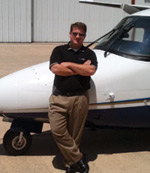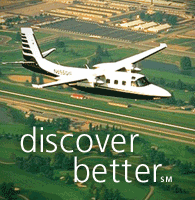HELPING HANDS FOR BUSINESS AVIATORS
AND BUSINESS AVIATION


The popular perception of pilots is that they are strong-willed and independent-minded types, but however close to or far from reality that characterization is, one thing is certain: no pilot can go it alone.
Even if there is just one person in the airplane, no flight is ever truly solo. It takes a lot of people and organizations--airframe, engine, avionics, and component manufacturers; maintenance shops and technicians; air traffic controllers; FBOs; and flight-planning and weather providers to name just a few--to make even the simplest flying happen in a safe, efficient, and enjoyable manner.
Operating just behind that front-line support is a solid network of excellent organizations, including associations, that provide products and services--and value-- to the entire process of owning and operating an aircraft.
Whether it is advocacy, training, communications, or spearheading industry discussions with the goal of setting new standards for all aspects of flying and technologies, aviation associations provide unique and essential services to the people and companies that make up the aviation community.
Aviation associations come in all shapes, sizes, and missions, but there are a handful that provide broad-based support and services. I want to mention a couple of industry groups in particular that benefit Commander owners as well as the whole of business aviation.
The National Business Aviation Association. NBAA (NBAA.org) has provided strong leadership and advocacy of business aviation's interests in front of national lawmakers, educating them on the importance of business aviation to the nation's economic health. NBAA also provides practical solutions for airport security, FAA modernization, and environmental matters that affect us all.
The General Aviation Manufacturers Association. GAMA (GAMA.aero) represents the interests of aircraft manufacturers, promotes aircraft ownership, and provides key leadership in developing industry technical standards, often partnering with NBAA on major issues.
The Aircraft Owners and Pilots Association. AOPA (AOPA.org) advocates common-sense approaches in matters concerning regulatory oversight of aircraft operation and ownership, security protocols, and taxation and user fees. Pilots will find AOPA an invaluable resource for staying up to speed on the latest changes affecting training and safety.
These organizations are often the first to pour through lengthy congressional bills, then spring into action when there are items in the fine print that threaten or impede the business of business aviation. They are at the forefront of lobbying efforts and leading the charge to prevent bad proposals from becoming harsh realities. Often, this involves educating others in the industry as well as those in Congress, explaining the potential impact a particular fee or law would have on their constituency.
These leading associations also work with regulatory agencies, most importantly the FAA, in crafting rules and regulations and providing guidance on matters that affect us in aviation business at all levels.
I would encourage you to look into these and other industry associations, and lend your support by becoming a member if you are not already. After all, you can't go it alone.
![]() Matt Isley, President, Twin Commander Aircraft LLC
Matt Isley, President, Twin Commander Aircraft LLC
Discuss this article in the forums...







